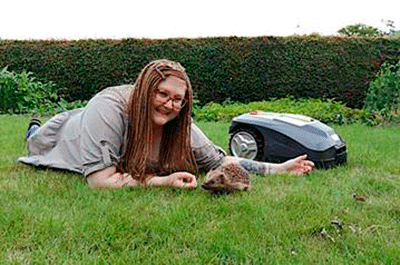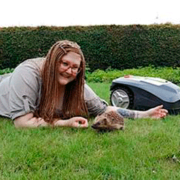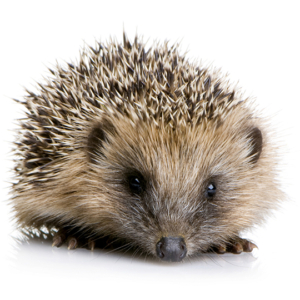NEW BHPS funded study


Do robotic lawn mowers harm hedgehogs?

Robotic lawn mowers running at night have been declared a great threat to the population of European hedgehogs. However, it has yet to be documented scientifically whether the robotic lawn mowers can harm hedgehogs. Hedgehog researcher Dr Sophie Lund Rasmussen from Aalborg University in Denmark has decided to put it to the test.
Countless news features have described how robotic lawn mowers running at night are mutilating hedgehogs. Worried citizens share pictures of injured hedgehogs on the social media encouraging garden owners to stop using robotic lawn mowers in order to protect the hedgehogs. But are the robotic lawn mowers in fact to blame for the injuries?
“People are truly fond of hedgehogs and frequently share advice regarding on how to help them, such as alerting people to the fact hedgehogs are lactose intolerant or suggesting that bonfires should not be built until the day they are to be lit, as hedgehogs may build nests inside the piles of wood and branches. The latest advice that is being shared is regarding robotic lawnmowers but we do not have scientific documentation proving that the robotic lawn mowers are causing the horrific injuries we see. We know that some of the injuries are consistent with lacerations caused by garden strimmers or dog bites,” says hedgehog researcher Dr Sophie Lund Rasmussen.
In her previous research she has necropsied 697 dead hedgehogs collected by volunteers throughout Denmark, and none of these hedgehogs showed signs of being killed by robotic lawn mowers.
Testing on dead hedgehogs
Sophie Lund Rasmussen is therefore keen to investigate whether robotic lawn mowers harm hedgehogs. By September, she will commence her postdoc position at Aalborg University and also join the WildCRU at Oxford University, where she will continue her research on The Danish Hedgehog Project. But until then she will spend her summer holiday investigating if there is any truth to the claim that robotic lawn mowers kill hedgehogs, or if the explanation for the injuries should be found elsewhere.
The research project is performed in collaboration with Animal Protection Denmark, Pindsvine Plejerne, WildCRU at Oxford University and The British Hedgehog Preservation Society.
The scientific investigation will be based on dead hedgehogs placed in front of approaching robotic lawn mowers, to record exactly how the machines react towards the hedgehogs. Do they detect them, stop and change direction, as they are supposed to? The dead hedgehogs in the study will be collected from hedgehog rehabilitation centres, where they were sadly too poorly to save. By using them for this project, the dead hedgehog will not have died in vain as they will instead help the living population.
“It is important to discover and document what is causing the horrific injuries we see on hedgehogs every year so that we can improve the conservation initiatives directed at this declining species. If my research shows that the robotic lawn mowers are not the cause, it is important to shift people’s focus to the real source of the problem to best protect the hedgehogs,” explains Dr Sophie Lund Rasmussen.
Hedgehog friendly robotic lawn mowers
The hedgehog researcher will investigate whether it is only special types of robotic lawn mowers with specific features that are causing the injuries, and if e.g. only smaller, juvenile hedgehogs are in danger of being injured or killed by the machines. Based on the results of the study, Dr Sophie Lund Rasmussen will collaborate with the producers of robotic lawn mowers to develop more hedgehog friendly models.
Fay Vass, Chief Executive of the British Hedgehog Preservation Society who is funding the project, says “This is important work, we need to find out if these mowers are in fact harmful to hedgehogs. If so we can offer advice to industry and to the public on how best to help hedgehogs when caring for the lawn. If these devices are of no threat, we can focus our efforts elsewhere. We would hasten to add of course no live hedgehogs will be in danger from this study.”
Facts:
Sophie Lund Rasmussen holds a PhD in biology and hedgehog ecology from University of Southern Denmark and Naturama. She will continue her research on The Danish Hedgehog Project as a postdoc at Aalborg University and WildCRU, Oxford University from September 2020, where she will conduct research into accumulation of poisons in hedgehogs.
The research project on robotic lawn mowers and hedgehogs is funded by The British Hedgehog Preservation Society.
Sophie Lund Rasmussen was one of five finalists in the science communication competition called PhD Cup 2020, established as a collaboration between Danish National Television (DR), Information and the Lundbeck Foundation. Read more here: http://www.phdcup.dk/english/
You can follow Dr Sophie Lund Rasmussen’ s research on the Facebook page Pindsvineforskning Hedgehog Research Denmark: https://www.facebook.com/Pindsvineforskning









